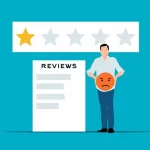Here are solutions to common problems. They’re calling the wrong number. I don’t have money. Stop all harassment.
What to Do When Debt Collectors Call the Wrong Number
Debt collectors are often known for being persistent and aggressive, but what happens when they call the wrong number? If you’ve received calls from debt collectors about a debt that you don’t owe, there are a few things you can do.
First, it’s important to stay calm and polite. Debt collectors are trained to get a reaction out of you, so don’t give them the satisfaction. Simply explain that you are not the person they are looking for and ask them to stop calling.
If the debt collector continues to call, you can send them a cease and desist letter. This is a formal letter that tells the debt collector to stop contacting you. You can find templates for cease and desist letters online or you can have an attorney draft one for you.
If the debt collector violates the Fair Debt Collection Practices Act (FDCPA), you can also file a complaint with the Consumer Financial Protection Bureau (CFPB). The FDCPA is a federal law that protects consumers from abusive debt collection practices.
What to Do If You Don’t Have Money to Pay Your Debts
If you don’t have money to pay your debts, there are a few things you can do. First, contact your creditors and explain your situation. They may be willing to work with you to create a payment plan that you can afford.
You can also try to negotiate a settlement with your creditors. This means that you would agree to pay a smaller amount of money than you owe in exchange for them closing the debt.
If you’re struggling to pay your debts, you may also want to consider bankruptcy. Bankruptcy is a legal process that can help you to discharge your debts. However, it’s important to note that bankruptcy can have a negative impact on your credit score.
What to Do If You Don’t Want to Pay Your Debts
If you simply don’t want to pay your debts, there are a few things you should keep in mind. First, debt collectors can still sue you even if you don’t owe the debt. If they win the lawsuit, they can garnish your wages or seize your property.
Second, not paying your debts can damage your credit score. This can make it difficult to get loans, credit cards, or a mortgage in the future.
Finally, not paying your debts can be a stressful and time-consuming experience. If you’re struggling to pay your debts, it’s best to seek professional help.






